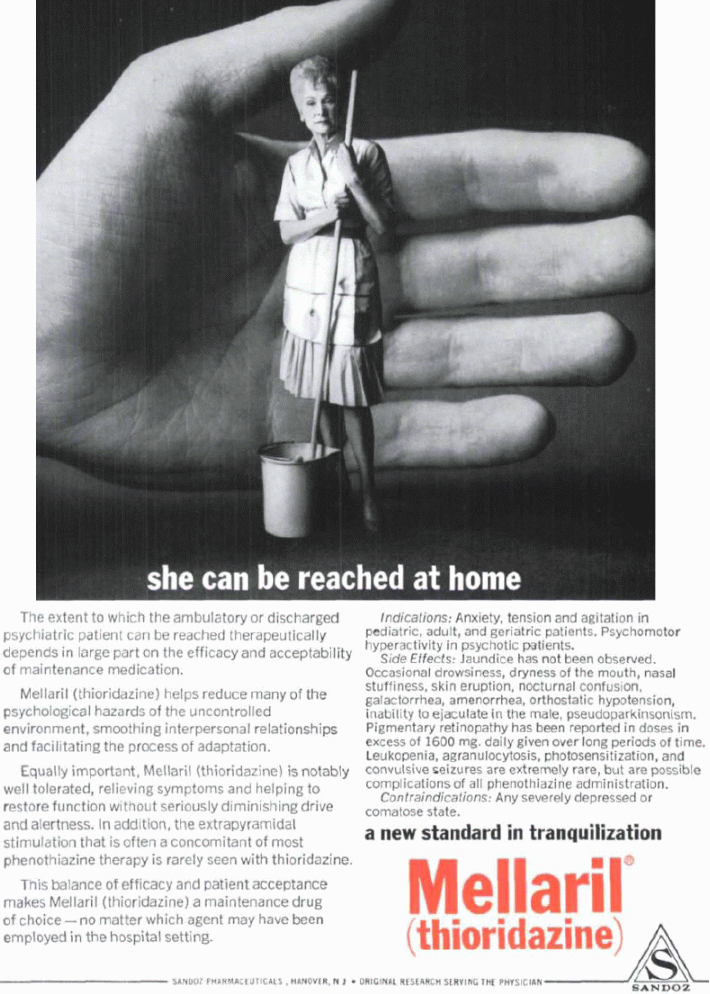

|
|
Mellaril advertisement, 1965. Psychosomatic Medicine, Vol. 27, No. 1. she can be reached at home The extent to which the ambulatory or discharged psychiatric patient can be reached therapeutically depends in large part on the efficacy and acceptability of maintenance medication. Mellaril (thioridazine) helps reduce many of the psychological hazards of the uncontrolled environment, smoothing interpersonal relationships and facilitating the process of adaptation. Equally important, Mellaril (thioridazine) is notably well tolerated, relieving symptoms and helping to restore function without seriously diminishing drive and alertness. In addition, the extrapyramidal stimulation that is often a concomitant of most phenothiazine therapy is rarely seen with thioridazine. This balance of efficacy and patient acceptance makes Mellaril (thioridazine) a maintenance drug of choice -- no matter which agent may have been employed in the hospital setting. Indications: Anxiety, tension and agitation in pediatric, adult, and geriatric patients. Psychomotor hyperactivity in psychotic patients. Side Effects: Jaundice has not been observed. Occasional drowsiness, dryness of the mouth, nasal stuffiness, skin eruption, nocturnal confusion, galactorrhea, amenorrhea, orthostatic hypotension, inability to ejaculate in the male, pseudoparkinsonism. Pigmentary retinopathy has been reported in doses in excess of 1600 mg. daily given over long periods of time. Leukopenia, agranulocytosis, photosensitization, and convulsive seizures are extremely rare, but are possible complications of all phenothiazine administration. Contraindications: Any severely depressed or comatose state. a new standard in tranquilization MELLARIL® (thioridazine) Sandoz Pharmaceuticals, Hanover, N.J. ~ Original research serving the physician |